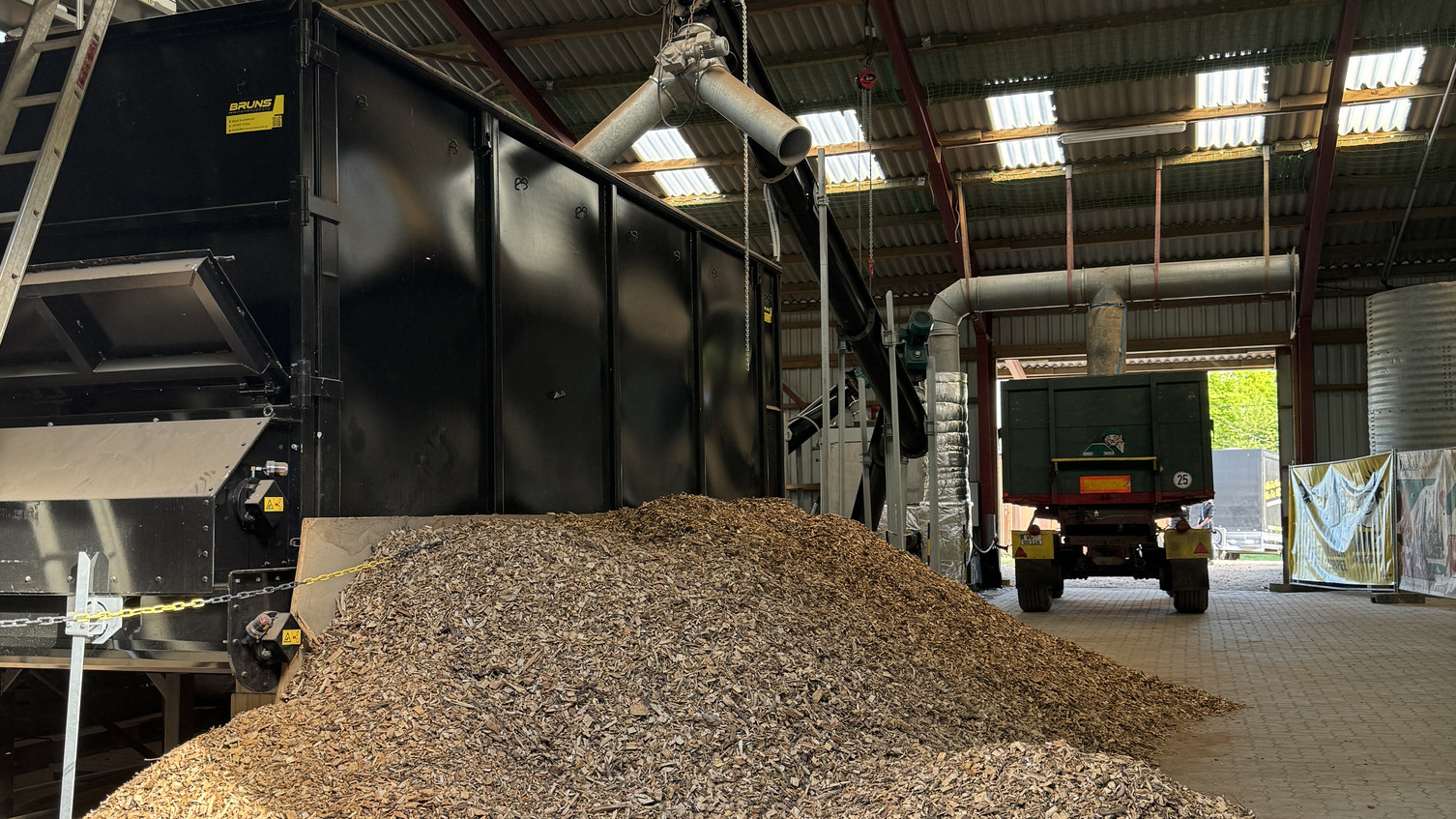Like a coal powerplant - but backwards
2025-05-14 Unusual insights: How does composting work with the dry toilets from Goldeimer? And how does the Carbon Collectors' pyrolysis process work? The Leuphana Social Innovation Community took a look at both at Vagtshoff in Ollsen.
A coal-fired power plant that runs backwards? That's exactly what's happening at Vagtshoff in Ollsen. At the open day, the non-profit company Carbon Collectors, which emerged from the Viva con Agua network, demonstrated how carbon dioxide can be permanently stored in the ground again using a so-called pyrolysis plant. The technology behind it is simple. Biomass (in the case of Carbon Collectors, wood chips from a local horticultural business) is burned into charcoal. In addition to storing CO2, this biochar is also suitable for arable farming, as it helps to bind nutrients in the soil.
The second plant on the Vagtshoff is also good for arable farming. The company Goldeimer is known for its toilet paper, which it uses to finance sanitation projects in Africa. Goldeimer also provides environmentally friendly dry toilets for festivals. Their contents are now recycled in a new plant and converted into fertilizer (a little biochar is also mixed in directly).
Both systems are innovation projects that want to try out as much as possible. A key question here is: how can the impact of the two technologies be scaled to the maximum? Because without scaling - as became clear at the open day - even these projects are just a drop in the ocean of global warming. This is why the Leuphana Social Innovation Community is also interested in developing such scaling strategies. Initial strategic approaches for carbon collectors have already been developed as part of a final thesis. The next step is to see to what extent these can be implemented so that as much coal as possible can be sunk.

